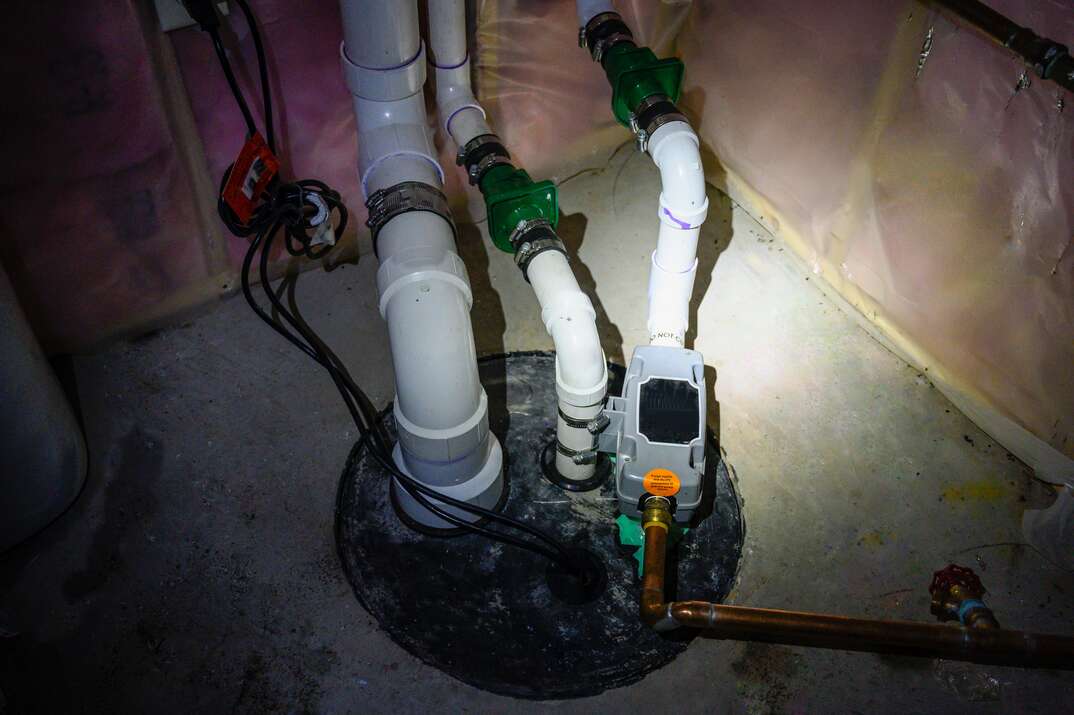- AppliancesElectriciansHVACLandscapingLocksmithPest ControlPlumbingRenovationRoofingT V RepairAll Home Improvement
- Car AccidentClass ActionCorporate LawCriminal DefenseDivorce LawEmployment LawFamily LawFinancial LawLegal AidMedical Injury LawyersMedical MalpracticeReal Estate LawWater Fire RestorationAll Legal
- InvestmentRetirementAll Finance
- Animal InsuranceAutoGeneral InsuranceHealth PolicyHome RentersAll Insurance
- DentalHealth SpecialistsAll Medical
- Animal CareVeterinaryAll Pets
- Auto GlassTowingAll Automotive
Does Your Home Need a Sump Pump?

Do you need a sump pump? That depends on several factors, including the weather where you live and whether you have a basement.
Sorting out the sump pump dilemma could save you from sloshing through inches of water in your lower level.
Not all homes have sump pumps, and some might not need them. It helps to understand how a sump pump works. The pump usually sits in a pit in the lower level of your home — typically in a basement or crawlspace. It pulls water away from the outside of your foundation, through the pump and back outside and away from your home to keep it from filling your basement.
If you don't have a basement or crawlspace, you don't have to worry about water flooding those areas, so your home likely won't have a sump pump. But even homes with basements sometimes don't have sump pumps. Not all builders add them, and older homes might not have a sump pump installed, either. The good news is you can add a sump pump if you decide you need one.
Reasons You Need a Sump Pump in Your Home
So, do you need a sump pump in your home? It's beneficial in most homes with basements. It’s especially beneficial (or even necessary) if you:
- Live in a wet climate with lots of rain and snow
- Live in an area that's prone to flooding
- Live in a location with a high water table
- Have poor grading on your property with slopes that run toward your home
- Have poor soil drainage around your home
- Have a finished basement
- Have expensive items, such as your HVAC system or washer and dryer, in the basement
- Have had previous water issues
You likely don't need a sump pump if your home is built on a slab foundation with no lower level. Homes on hills that don't have any water-related issues might also be safe without a sump pump.
More Related Articles:
- Calling a Plumber? Here Are the 6 Most Common Plumbing Jobs and How Much They Cost
- 6 Ways to Try to Unclog Your Sink Before You Call a Plumber
- What's in My Plumber's Van?
- Here's How Much It Costs to Remodel a Bathroom
- 6 Tips for Hiring a Plumber
If you're unsure if you need a sump pump, looking at the benefits could help you decide. Here are some advantages of installing a sump pump in your basement or crawlspace:
- Prevents flooding: Standing water in your home is messy and causes a lot of damage. Your sump pump runs automatically to keep water out and prevent flooding.
- Keeps your home dry: A dry home also creates a healthier indoor environment. Proactively removing the water can reduce the risk of mold and mildew growth, which can irritate allergies and cause respiratory issues.
- Protects your foundation: Water sitting around your foundation puts a lot of pressure on it. The pressure can cause cracks and other damage, which is an expensive fix. The sump pump draws the water away from the foundation and relieves that pressure.
- Improves your property value: Sump pumps give homeowners peace of mind. That extra bit of protection could boost your home's value slightly because prospective buyers can appreciate the benefits it offers.
- Protects key home components: Even if your basement isn't finished, it likely contains wiring, plumbing and HVAC equipment. Keeping the area dry with a sump pump prevents damage to those components, which keeps them functioning properly.
A sump pump protects everything in your lower level. If you have a finished basement, the benefits of having a sump pump could be a lot more valuable since you have more to lose if your home floods. But it also keeps your home's foundation safe and strong, so you still reap the benefits, even if you have an unfinished basement or a crawlspace you never use.
Do You Need a Sump Pump?
If your home has a basement or crawlspace, a sump pump could be a good investment. Consider your overall risks and whether you've had water concerns in the past. A local plumber who's familiar with the soil type, weather patterns and other risk factors in your area can give you personalized advice to help you determine if you need a sump pump.
Elocal Editorial Content is for educational and entertainment purposes only. Editorial Content should not be used as a substitute for advice from a licensed professional in your state reviewing your issue. Systems, equipment, issues and circumstances vary. Follow the manufacturer's safety precautions. The opinions, beliefs and viewpoints expressed by the eLocal Editorial Team and other third-party content providers do not necessarily reflect the opinions, beliefs and viewpoints of eLocal or its affiliate companies. Use of the Blog is subject to the
Website Terms and Conditions.The eLocal Editorial Team operates independently of eLocal USA's marketing and sales decisions.



